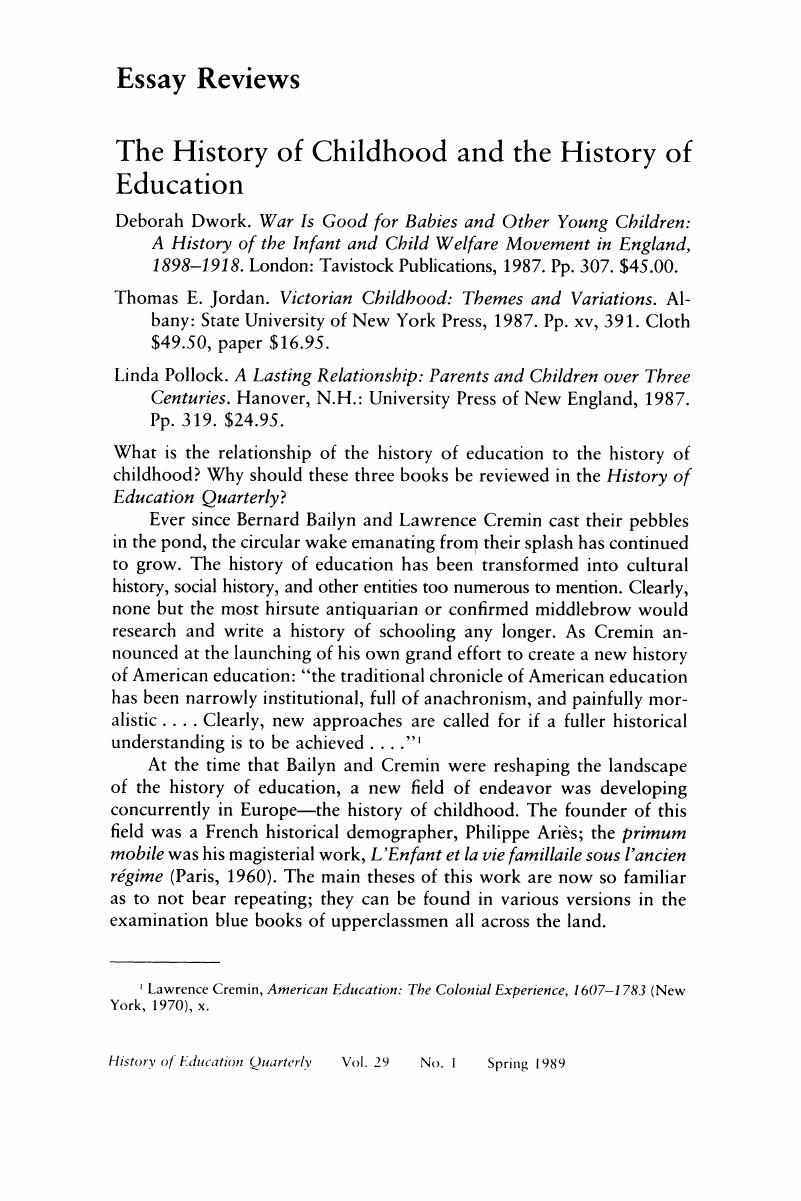Published online by Cambridge University Press: 24 February 2017

1 Cremin, Lawrence, American Education: The Colonial Experience, 1607–1783 (New York, 1970), x.Google Scholar
2 Two excellent articles that call attention to these details are Wilson, Adrian, “The Infancy of the History of Childhood: An Appraisal of Philippe Ariès,“ History and Theory 19 (No. 1, 1980): 132–53, and Vann, Richard T., “The Youth of Centuries of Childhood,” History and Theory 21 (No. 2, 1982): 279–97.Google Scholar
3 “The Massacre of the Innocents,” New York Review of Books, 14 November 1974, 27.Google Scholar
4 Hunt, David, Parents and Children in History: The Psychology of Family Life in Early Modern Prance (New York, 1970), 45.Google Scholar
5 Ariès, Philippe, Un historien du dimanche (Paris, 1980), 138–39. This is Ariès's delightful autobiography.Google Scholar
6 Second edition (Muenchen, 1978).Google Scholar
7 See, for example, Firestone, Shulamith, The Dialectic of Sex: The Case for Feminist Revolution (New York, 1970). See especially 75–91, where Firestone incorporates Ariès into her ideology.Google Scholar
8 Ariès, , Un historien, 138.Google Scholar
9 Brown, Irene Q., “Philippe Ariès on Education and Society in Seventeenth- and Eighteenth-Century France,“ History of Education Quarterly 7 (Fall 1967): 357–68.CrossRefGoogle Scholar